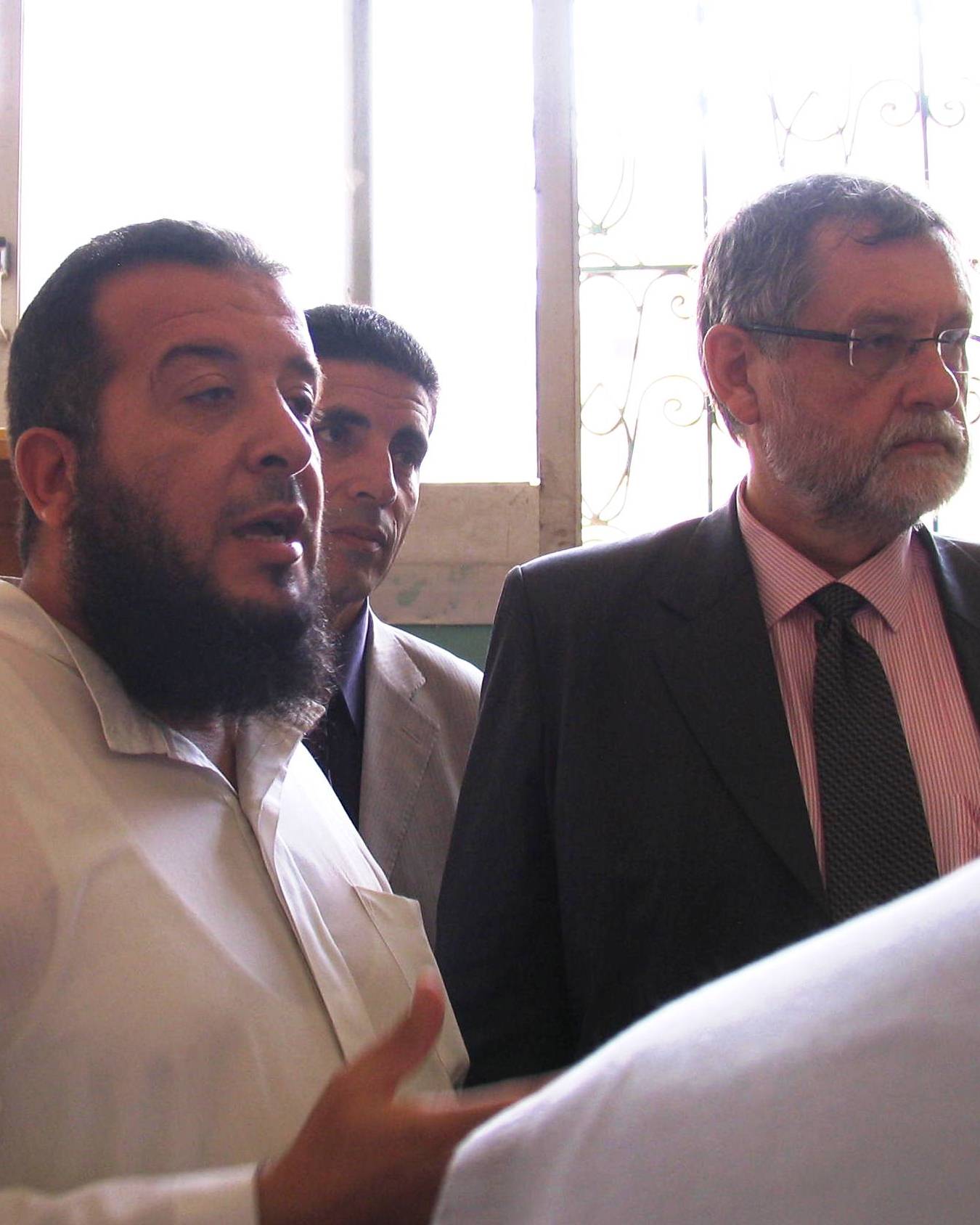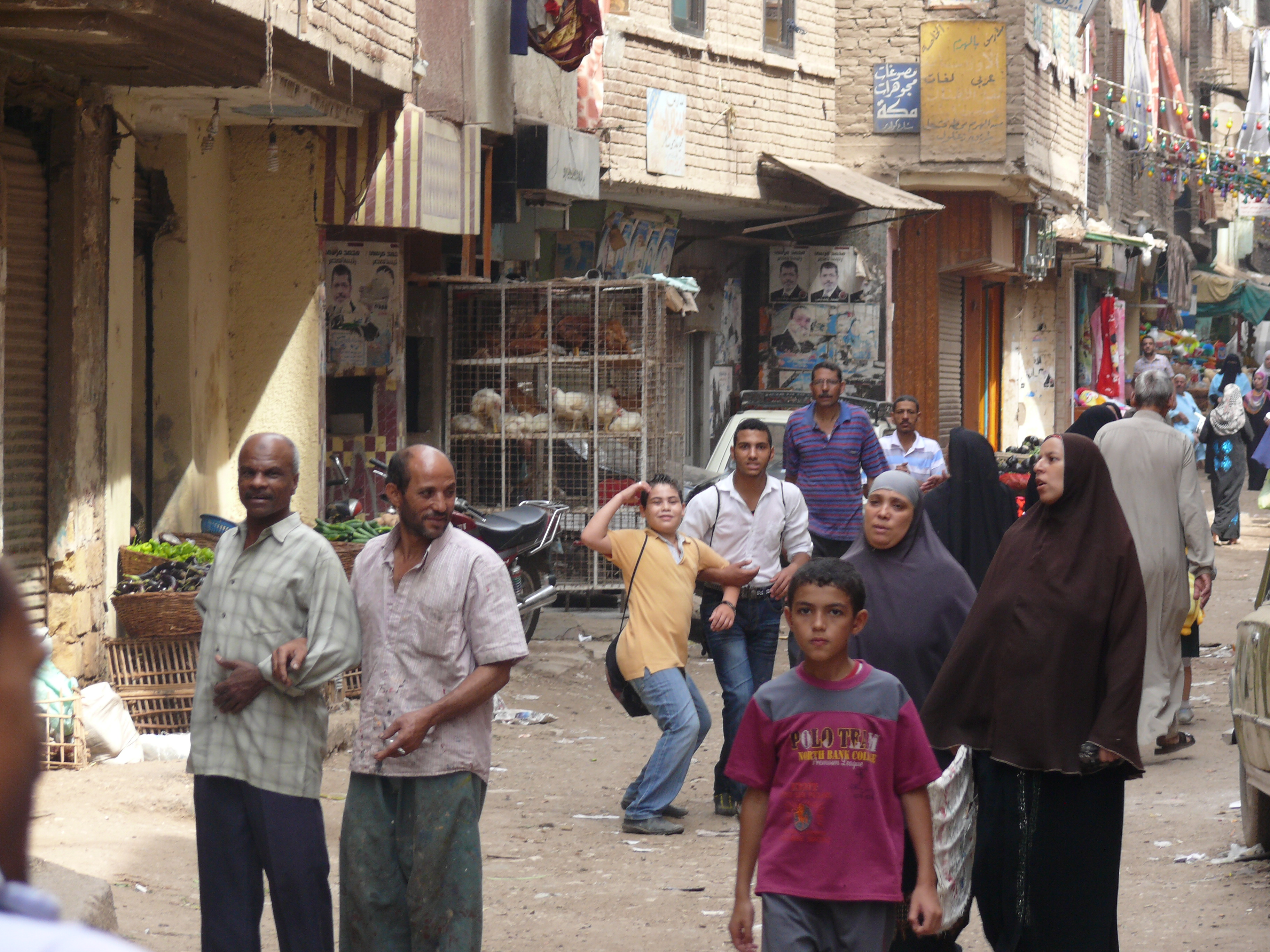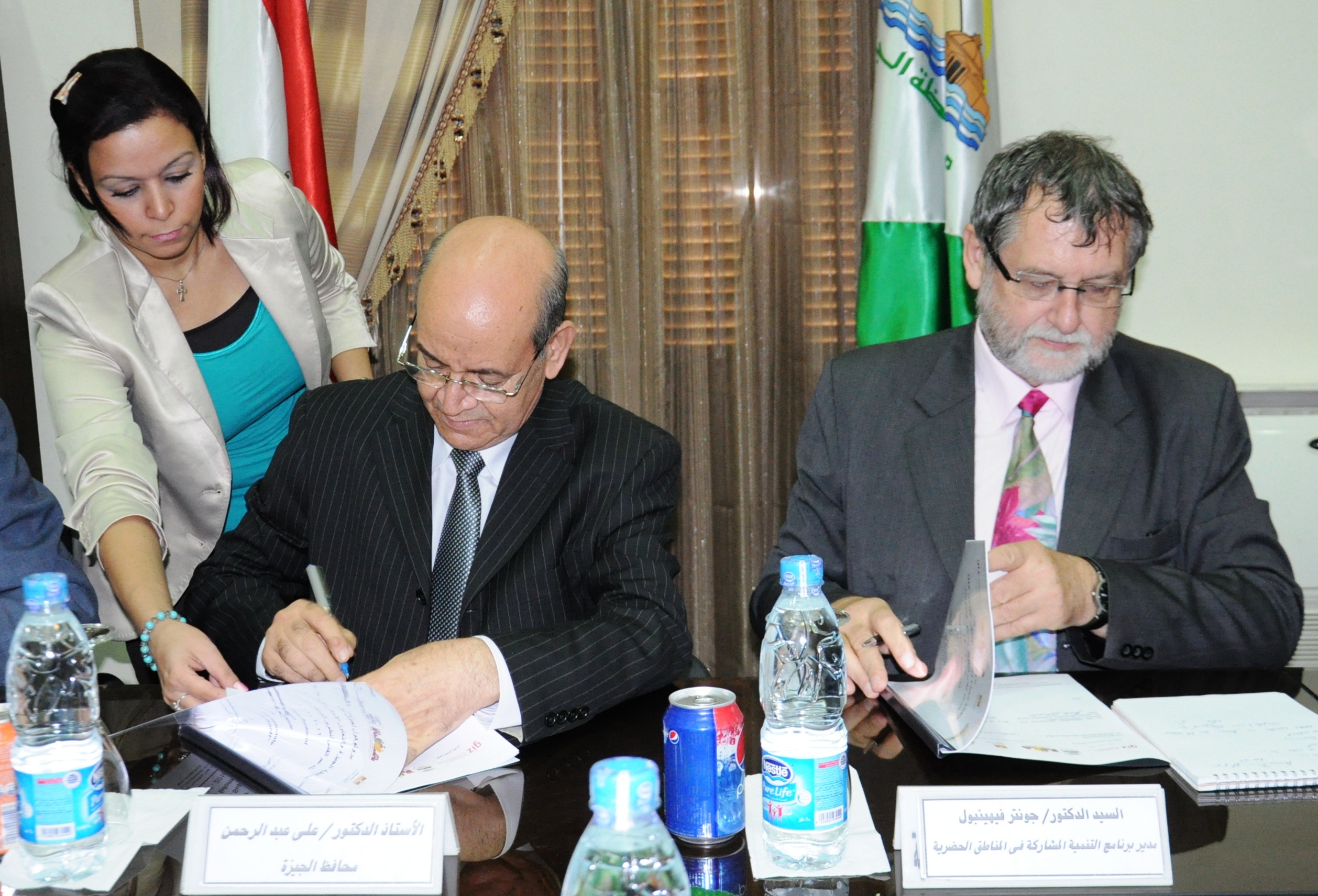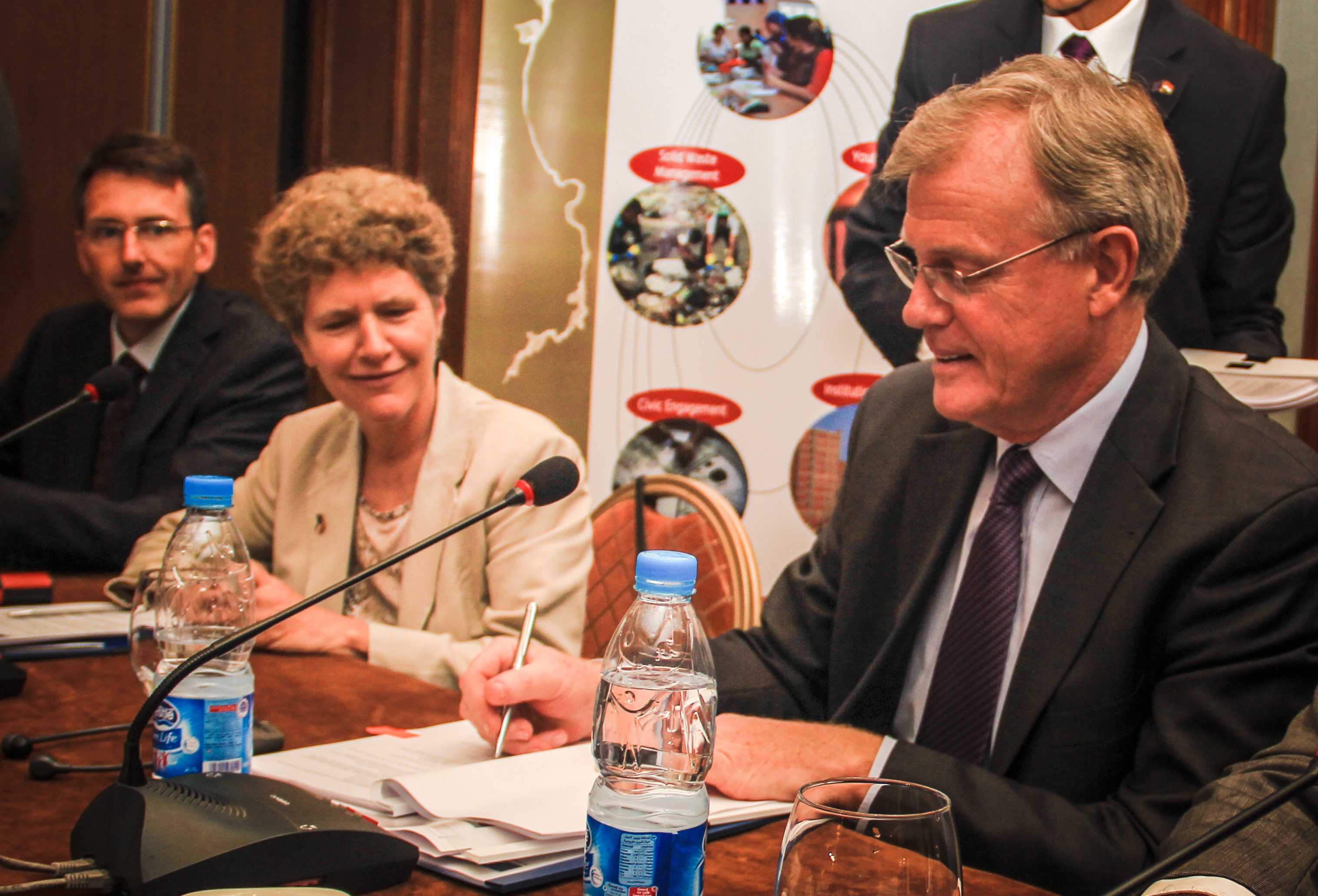On 4 October 2012 James Moran, Ambassador of the European Union (EU) Delegation to Egypt, visited informal areas in Giza Governorate, marking the start of a new phase of upgrading measures carried out by the Participatory Development Programme in Urban Areas (PDP) to improve the living conditions of an estimated 1.9 million residents in informal areas in Cairo and Giza.

James Moran visited Local Initiative Projects implemented previously in Boulaq El-Dakrour. These include a health center for the area’s residents, a workshop where local women sew textiles and a new football pitch in a youth club. He also seized the chance to speak with fire fighters about the improved fire services in the area.
Afterwards the Ambassador visited Masaken Geziret El-Dahab in southern Giza – one of four new areas to be upgraded by the PDP with EU co-financing – to get to know the situation on the ground and talk to local residents about their ideas for improving living conditions in the area.
EU contributes € 20 mio to urban upgrading
The high-profile visit came in the wake of a new agreement between the Egyptian Ministry of Planning and International Cooperation and the EU to carry out additional urban upgrading measures in Cairo and Giza over the coming 4 years. Based on the PDP’s successful track record and strong experience in the area of urban development it was agreed that the EU would co-finance the programme’s work in four informal areas (Masaken Geziret El-Dahab and Hekr Ibli/Warraq in Giza, and Ain Shams and Ezbet El-Nasr in Cairo Governorate).
Joining Mr Moran on his visit were General Ahmed Hany, the Assistant Secretary General of Giza Governorate, and Dr Mohamed Fathy Sakr, Economical Advisor to the Minister of

Planning and International Cooperation. The visit to the two areas was preceded by a short meeting between the EU Ambassador and Dr Ali Abdel-Rahman, the Governor of Giza to discuss the cooperation and the work ahead.
4 informal areas will be upgraded until 2016
With € 20 million from the EU, € 4 million from the German Federal Ministry for Economic Cooperation and Development (BMZ), and one million Egyptian Pound per year from the Egyptian Ministry of Planning and International Cooperation, the PDP will work with local
partners – including public administration, civil society, and the private sector – to upgrade the selected four informal areas in Cairo and Giza until 2016.
Approximately 60% of people in Greater Cairo live in unplanned, densely populated areas that lack basic services and social infrastructure, and are suffering from environmental pollution. The PDP’s aim is to upgrade informal areas, in ways that involve local residents, and to enhance their living conditions and alleviate urban poverty through improving local services and environmental conditions.

Market street in Masaken Geziret El-Dahab





